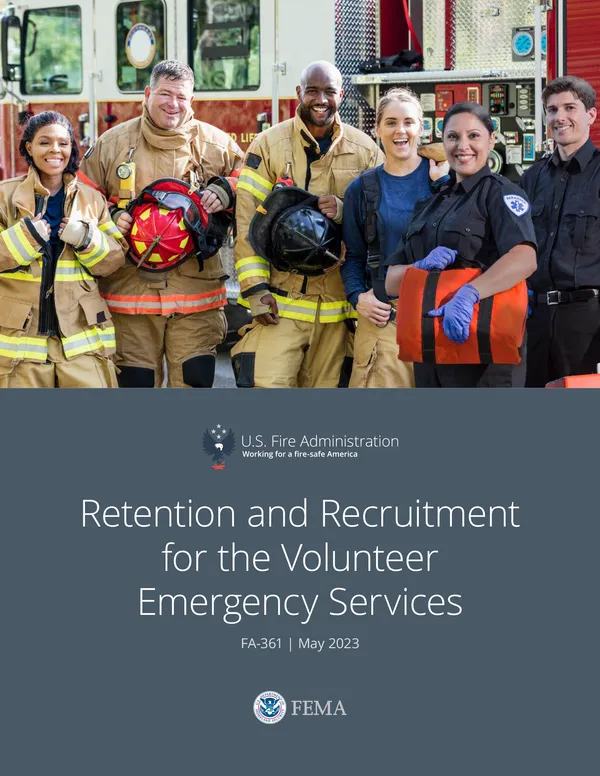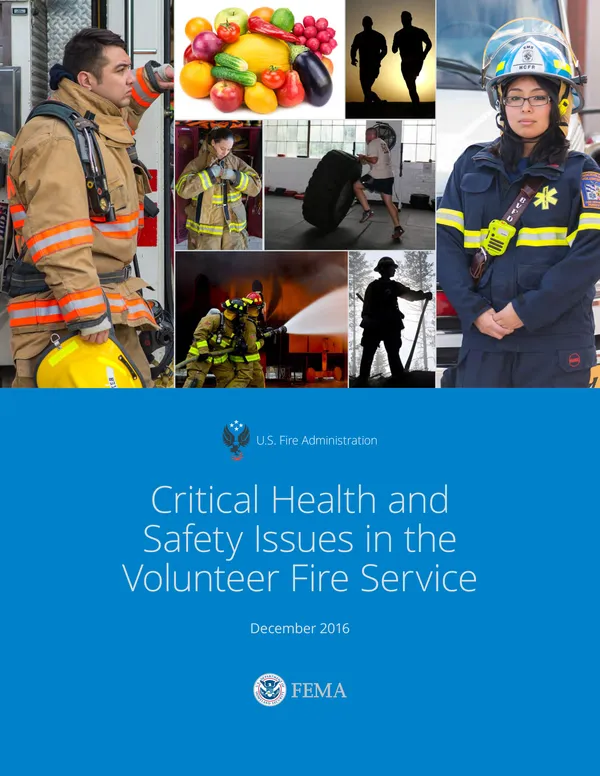Recruitment and retention
Recruitment and retention are the cornerstone of any volunteer fire or EMS department. Without proper staffing, fire and EMS departments cannot provide the services and protection their communities need. It is critical that volunteer departments have the necessary tools, information and support to assist in their efforts to recruit and retain volunteers.
The root causes of recruitment and retention challenges have remained similar over the past decade. What has changed is the pace of the contributing factors and the urgency needed to address them.
Focus areas
- Recruitment and retention challenges
- Collaborating with local government
- Recruitment strategies
- Retention strategies
Health and safety
See also: USFA resources on firefighter health, safety and wellness
The volunteer fire service has its own distinct issues related to health and safety. This report identifies resources, provides references, suggests tools, illustrates best practices, and establishes goals and objectives for each issue to help departments improve firefighter safety, well-being and survival.
As a nation, we rely on the volunteer fire service every day to save lives and protect property in times of danger and disaster. In order to do so, volunteers must first be healthy, safe and able to respond.
Focus areas
- Aging of the volunteer fire service
- Declining number of volunteers
- Funding
- Rural operations
- Time constraints
Training
Off-campus and online training opportunities
The NFA has many other courses that volunteers can take close to or at home to help meet professional development goals and reduce all-hazards risks to communities. Learn about NFA courses.


